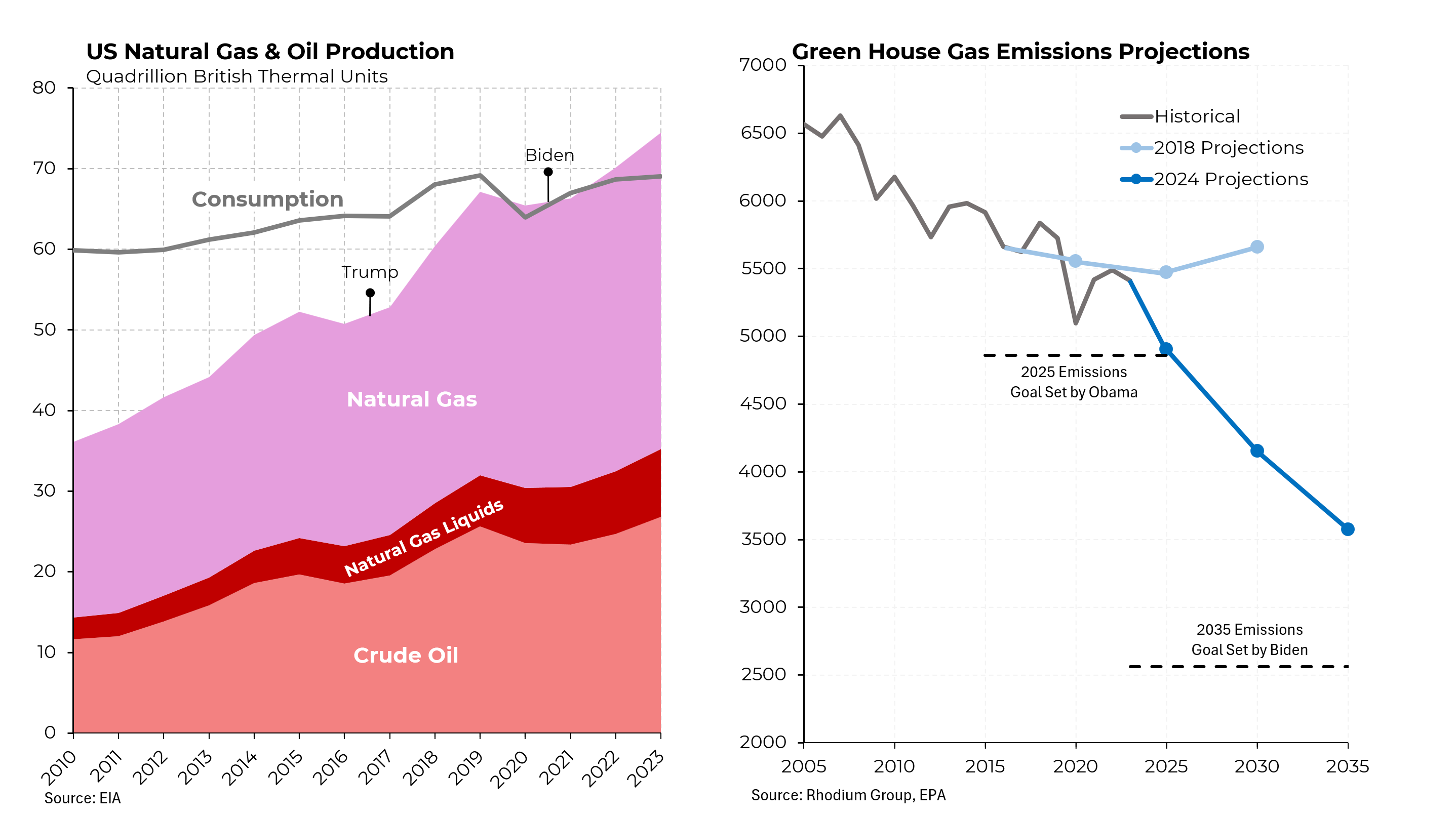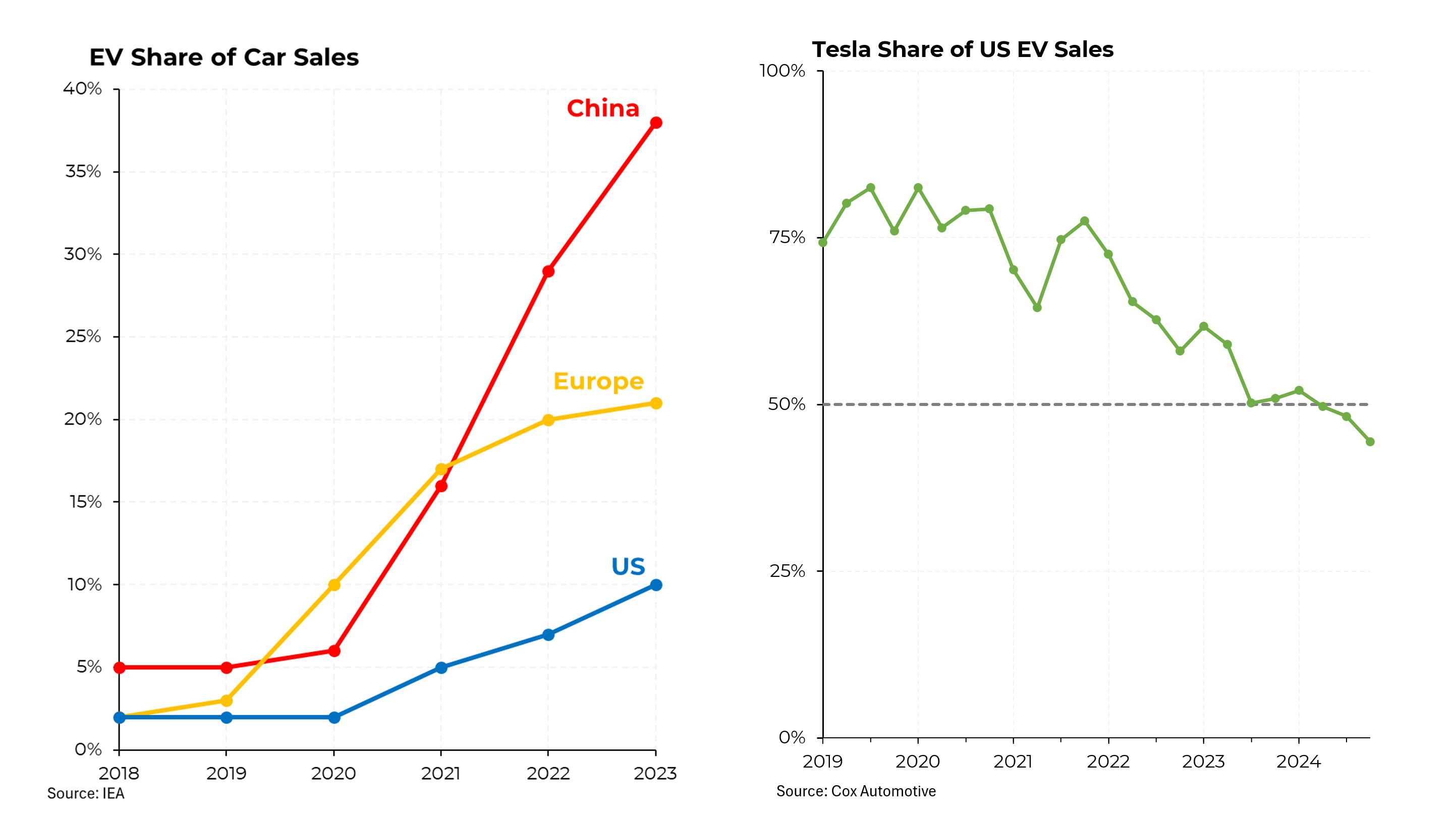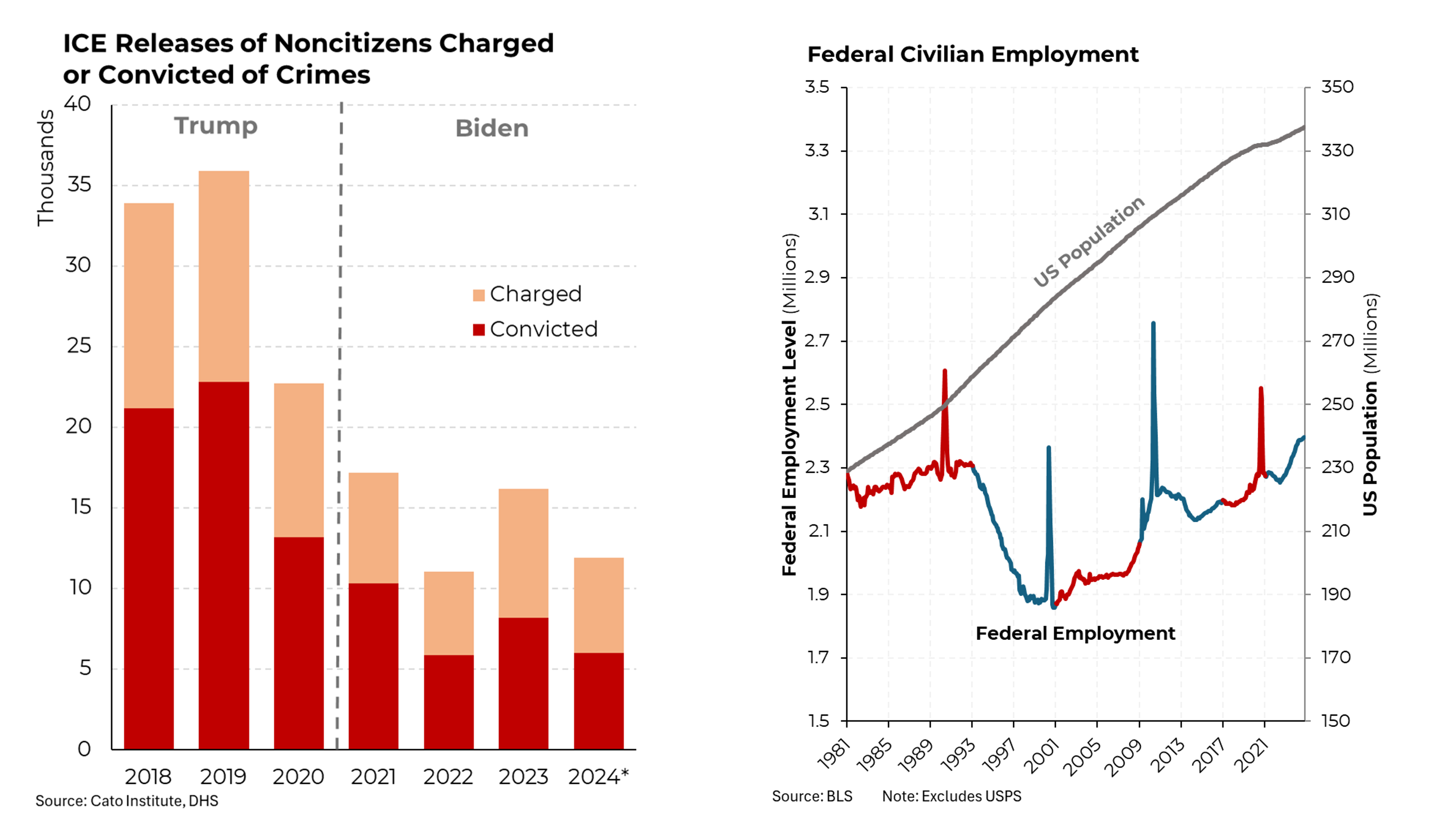President Donald Trump took office on Monday and immediately plunged into an unprecedented barrage of executive orders and policy pronouncements. On just his first day, the new president signed 26 executive orders, including one that overturned 67 orders that former president Joe Biden had issued over his four years. By comparison, Biden signed 9 on his first day and 42 over his first 100 days. (In his first term, Trump signed just one on his first day and 33 over his first 100 days.)
One of the major focal points for Trump was the intersection of energy and climate. He declared a “national energy emergency,” a follow up to his campaign slogan of “drill, baby, drill.” The problem with that pronouncement is that it is a solution in search of a problem. American energy companies have been drilling robustly and production of oil and natural gas continues to notch record after record. Indeed, after many years of importing large quantities of oil, the United States became a net exporter in 2020 (briefly and principally because of Covid) and then on a greater and more sustained basis beginning in 2022 under, yes, Joe Biden. Indeed, we are now the largest producer of oil and gas in the world.
At the same time, Trump (for the second time) pulled the U.S. out of the Paris Agreement, putting us alongside Iran, Libya and Yemen as the only countries that are not signatories. That’s tragic because the U.S. had finally adopted measures that held the promise of a sharp and sustained decrease in carbon dioxide emissions. That projected decrease was achieved by a series of measures — all of which Trump has taken aim at — including tailpipe emissions standards, the Inflation Reduction Act, and increased generation of renewable energy. Absent those important policy changes, projected emissions may well return to the 2018 path.
On a related front, Trump has also taken aim at electric vehicles; among his executive orders was one taking aim at tax credits for those who buy EVs and halting development of a nationwide system of charging stations. That’s particularly unfortunate as the U.S. has been lagging badly in the worldwide effort to transition away from gasoline powered vehicles. In China, sales of electric vehicles are now approaching 50% of all car purchases. In Europe, that figure now exceeds 20%. But in the U.S., just 10% of car sales are electric. All told, China now commands 76% of all global sales of electric vehicles.
Interestingly, Trump’s moves may help Tesla, which has been losing market share in the U.S. as other automakers ramp up their electric offerings. Taking away EV incentives may be enough to eliminate Tesla’s smaller, newer competitors, allowing the company to recapture its market share. Indeed, in a July 2024 post on X, Elon Musk, the company’s chairman and chief executive, said, “take away the subsidies. It will only help Tesla.” Since Trump’s victory on November 5, Tesla stock has risen by 65%, giving the company a market value of $1.3 trillion. (By comparison, General Motors has a market capitalization of less than $60 billion.)
Not surprisingly, the southern border was another focus of Trump’s early actions; he’s declared a national emergency at the southern border, citing horrific murders and criminal activity. But his own record on this front is far inferior to Biden’s. In 2017, Trump signed an executive order rescinding Obama-era policies that deprioritized the detention and removal of serious public safety threats. As a result, releases of non-citizens charged or convicted of crimes averaged 30,840 in the ensuing three years (and included 8,620 violent criminals and 306 murderers). But Biden returned the focus to removing criminals and releases of criminals dropped sharply, averaging 14,070 during Biden’s term.
On another front, Trump has taken aim at the federal workforce, including freezing hiring for at least 90 days (and indefinitely for the Internal Revenue Service). But that is another solution in search of a problem. Civilian federal employment rolls are up by just 102,900 since 1993 (4%) while the U.S. population has risen by 31%. He has also mandated a full return to in-office work and reinstated a program he implemented during his first term that allows him to fire disloyal civil servants. And he has put all federal DEI officials on paid leave as he dismantles this function across the government.








